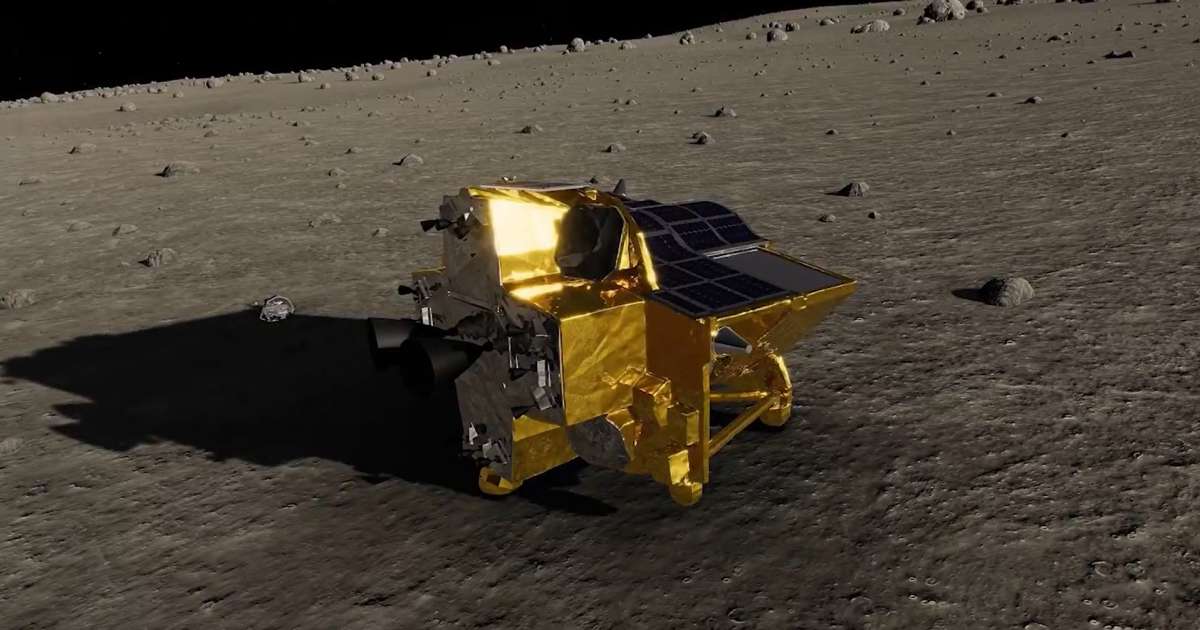The spacecraft’s solar cell is not generating electricity. Currently, the lander is operating on limited battery power, only expected to last several hours, reports Asian Lite News
Japan created history by becoming only the fifth nation to successfully complete the soft landing on the moon with its ‘Moon Sniper’ robotic explorer, but fear looms that the mission may end prematurely since the spacecraft’s solar cell is not generating electricity, CNN reported, citing the Japan Aerospace Exploration Agency.
The agency said it is currently receiving a signal from the lander, which is communicating as expected.
The uncrewed Smart Lander for Investigating Moon, or SLIM, mission landed just after 10:20 am ET Friday (12:20 am local time), according to telemetry data shared on JAXA’s live broadcast.
Currently, the lander is operating on limited battery power, only expected to last several hours, and the JAXA team is analyzing the data to determine the cause of the solar cell issue and the next steps for the lander. The solar cell issue may be because the spacecraft is not pointing in the intended direction, JAXA officials said.
According to CNN, there is still hope that as the solar angle changes on the moon, the solar cell may be able to charge again, but that may take some time and will depend on whether SLIM can survive the frigid lunar night, the team shared during a news conference.
The agency believes the mission has met the criteria to declare it a “minimum success,” because the spacecraft achieved a precise and soft lunar landing using optical navigation. The landing makes Japan the third country to land on the moon this century, and the fifth overall.
When asked to score the landing operation for SLIM, JAXA director general Dr. Hitoshi Kuninaka gave it a “60 out of 100,” while also mentioning that he is known for making “harsh comments.”
The team is also working to gather all of the scientific data obtained by the lander.
The lander was able to release its two lunar rovers, LEV-1 and LEV-2. The LEV-1 rover moves using a hopping mechanism and is equipped with wide-angle visible light cameras, scientific equipment and antennas that allow it to communicate with Earth, CNN reported. The LEV-2 also outfitted with cameras, can change shape to move across the lunar surface.
Meanwhile, the team is receiving a signal from LEV-1 and will see if its cameras were able to capture any images, and they will not definitively confirm the status of LEV-2 until more data is received.
The small-scale SLIM robotic explorer, which launched in September, goes by the nickname “Moon Sniper” because it carried new precision technology to demonstrate a “pinpoint” landing.
Previous lunar missions have been able to target and reach specific zones that spanned many kilometres, but the SLIM lander targeted a landing site that stretches just 100 meters (328 feet) across. The lander’s “smart eyes” — an image-matching-based navigation technology — rapidly photographed the lunar surface on approach and autonomously made adjustments as the spacecraft descended to touchdown on a sloped surface, as reported by CNN.
The JAXA team is still working to determine the accuracy of SLIM’s landing, which could take up to a month. (ANI)
ALSO READ: ‘US to Include Int’l Astronaut on NASA’s Artemis Moon Mission by 2030’

Leave a Reply